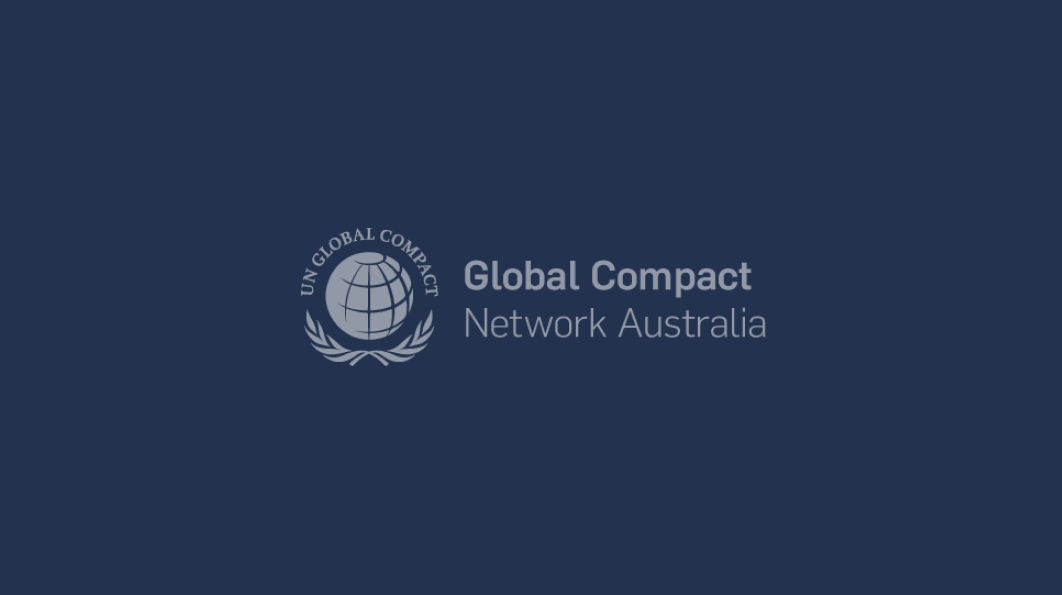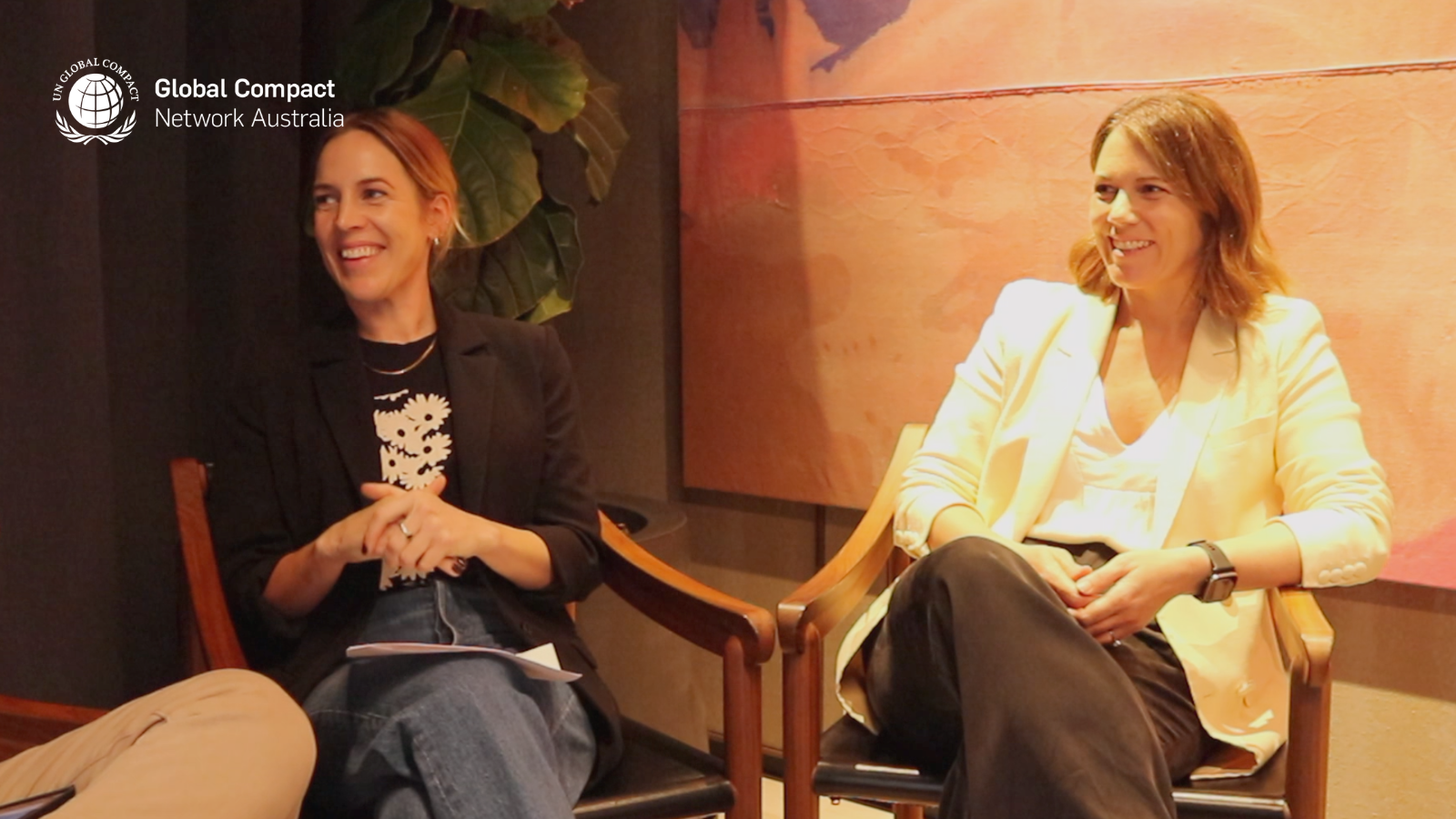
Business & Human Rights, News
Engaging on business and human rights on the world stage – an update on the 2016 UN Annual Forum on Business and Human Rights
UN Global Compact Network Australia | December 15, 2016
To help drive implementation of the United Nations Guiding Principles on Business and Human Rights (UNGPs), the United Nations (UN) in 2011 established an Annual Forum on Business and Human Rights (Annual Forum). Organised each year by the Office of the UN High Commissioner for Human Rights (OHCHR) with guidance from the UN Working Group on Business and Human Rights (UNWG), the idea is to bring together all key stakeholders including business, government and civil society to move the agenda forward and build stronger relationships for collective action. This year’s 5th Annual Forum, held from 14-16 November in Geneva, focused on Leadership and Leverage: Embedding Human Rights in the Rules and Relationships that Drive the Global Economy. The event is akin to a Comic-Con for business and human rights practitioners – an opportunity to reconnect with colleagues from around the world and take the pulse on key challenges and opportunities from high level policy making to operations on the ground. Perhaps more importantly, it is also being increasingly frequented by newcomers, including businesses, seeking to better understand different stakeholders’ views as well as guidance on how to progress their own work.
Who was there?
Amongst over 2,000 participants from 140 countries it was good to see a more proportionate spread of different stakeholder groups than previous years. Based on figures provided by OHCHR, 24% of participants were from business enterprises and associations and 30% from civil society organizations, affected stakeholders, trade unions and indigenous peoples groups. Governments made up 14% of the participants. 55% of the participants were women and 45% were men.
There were 47 registered Australians though the majority are not based in Australia. There were 4 Australian business participants. So while there were plenty of Australian accents bemoaning the coffee there is more work to do to raise participation of Australians working on business and human rights issues in the Australian context. It was encouraging to see higher participation from the Australian Government than previous years, including from the Department of Foreign Affairs and Trade and the Attorney-General’s Department as well as the Australian Permanent Mission to the UN. This included co-convening a session focused on Australian efforts to engage business as part of the Bali Process to end trafficking and modern slavery in the Asia-Pacific region.
Businesses tended to be represented by sustainability practitioners, in-house counsel or procurement specialists. There was higher participation by senior leaders including CEOs than previous years. This included Australians Mark Cutifani from Anglo American and Andrew Forrest from Fortescue Metals Group though representing the Walk Free Foundation.
What was on the agenda?
The 2016 Annual Forum aimed to focus on the leadership and leverage that different stakeholders in business value chains can exercise to help prevent and address adverse business related human rights impacts. covered topics ranging from the role of state-owned enterprises to increasing interest in the activities of financial institutions. The Sustainable Development Goals (SDGs) were front and centre, with various sessions around integrating respect for human rights into business implementation of the SDGs. Access to remedy was also a focus with several sessions discussing the particular challenges faced by human rights defenders. And of particular interest to Australian stakeholders following the Government’s business and human rights consultations, there was a helpful session where 13 Governments including the U.S., U.K., and Japan provided updates on national action plans on business and human rights (NAPs). The OHCHR will release an event summary in coming months. In the meantime, you can watch sessions that were recorded as well as see some of the statements made at the Annual Forum.
What were the key takeaways?
As with any large scale event participants’ views will differ on key themes from the Annual Forum. The following are just some of the interesting ideas and next steps discussed.
More work is needed to ensure respect for human rights is effectively embedded into business plans and action to implement the SDGs
Professor John Ruggie, author of the UNGPs, made powerful remarks regarding the need for companies to continue to see respecting human rights as a baseline in implementing the SDGs. He spoke of avoiding siloes between companies’ human rights and SDGs work. He also expressed concern that the emerging SDG narrative (a) does not sufficiently equate “doing no harm” with “doing good”; and (b) that shifts from the language of responsibility to opportunity without meaningfully linking the two may not be doing key stakeholders, including business, any favours in terms of managing risks to people and business. These views were reiterated in other sessions by a variety of stakeholders.
Businesses – NGO/community engagement is not progressing the way it should be and there is a particular gap when it comes to minimising risks to human rights defenders
The Annual Forum provides an important opportunity for business and civil society to take stock of their interactions over the past year. It was concerning that amidst some exceptions there were too many examples presented (from both sides) of business and civil society disengaging with each other as well as showing a lack of understanding of how the other operates, their drivers and key interests. One of the worst results of failing to meaningfully engage can be attacks on human rights defenders and it was humbling to hear so many human rights defenders address the Annual Forum. These included Laura Caceres, the daughter of Berta Caceres, a human rights defender killed in Honduras earlier this year. Business and civil society participants both spoke of the need for businesses to better understand the risks they may be posing to human rights defenders as part of human rights due diligence. There was also recognition that while debate amongst business and civil society is unlikely to, and should not, cease, both groups could improve on avoiding positional approaches that are unlikely to help rights-holders on the ground. You can watch one of the human rights defenders’ focused sessions here.
Governments are expected to step up their implementation of the UNGPs including their support for all stakeholder groups to do the same
Professor Ruggie commented in his opening remarks that he believes governments have been the weak link in the business and human rights chain from the start. Various sessions explored the role of government in enforcing existing laws and equipping existing mechanisms, such as labour inspectorates, to operate as intended. It was also clear that governments have a key role in highlighting the parameters of responsible behaviour at home and abroad. While not seen as a silver bullet, several sessions spoke of the opportunities of NAPs to improve State implementation of the UNGPs. Business participants were active in this discussion, with 9 leading business associations, including the UN Global Compact, releasing a statement welcoming NAPs as a mechanism to help drive consistency amongst States in what they expect of business. The role of regulation was also a common theme throughout the Annual Forum. Businesses highlighted the need for not only a smart mix of policy and regulatory measures from government as recognised in the UNGPs, but also smart regulation which drives complementary practice and takes account of multi-jurisdictional challenges.
Benchmarking is here to stay alongside increasing scrutiny of companies’ human rights related disclosures
Initiatives like the Corporate Human Rights Benchmark and the UNGPs Reporting Framework combined with regulatory developments like the UK Modern Slavery Act mean that companies are being asked for more and better information on their human rights risk management. It is clear there is increasing pressure to report not only on policies and processes but also on how complaints and other dilemmas have been resolved. Mark Wilson, CEO of Aviva, helped spark debate throughout the Annual Forum around whether human rights should occupy a precompetitive or competitive space with the takeaway that regardless, the reality is that investors, business partners and others are using benchmarking to assess human rights risk management readiness and implementation. Businesses participants highlighted their approaches to benchmarking and reporting and reiterated the need for expectations around transparency to remain realistic and consistent.
Should I go next year?
Next year’s Annual Forum will be in Geneva from 27 – 29 November and will focus on access to remedy, the 3rd pillar of the UN Protect, Respect and Remedy Framework underpinning the UNGPs. Admittedly it is not easy for Australian stakeholders to get to Geneva and especially at the business end of the year. So why make the effort? From a high level standpoint it is important to ensure Australian experiences and expertise are taken to the global stage and vice versa. Australian practice is advanced in some respects and lagging behind on others. Joining the global discussion can provide catalysts and ideas to better manage issues in the Australian context. From a business and individual perspective there is considerable benefit in being at an event with so many key stakeholders in one place. In addition to building relationships, official sessions are improving each year in the opportunities they offer for deep dives on implementation challenges. Being a business at the Forum can be confronting – all sessions are multi-stakeholder and some are televised, stakeholders may take the opportunity to name and shame and social media is ever-present. Again views differ but many businesses that keep coming back believe the opportunities outweigh the risks. A call to action therefore for engaged Australian stakeholders to consider participating in the 2017 Forum and to encourage others to do the same. This includes convening or speaking at a session, with the UNWG to call for inputs to next year’s Annual Forum around March.
Author
Vanessa Zimmerman, Chair, Human Rights Leadership Group, GCNA
Vanessa is a recognised business and human rights expert and has supported the GCNA’s Human Rights Leadership Group since its establishment in 2009. You can view Vanessa’s full bio here.
The author’s views expressed in this article are her own and do not represent the views of any organisation.

